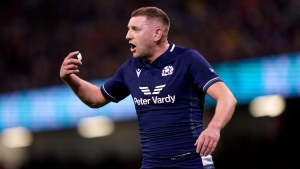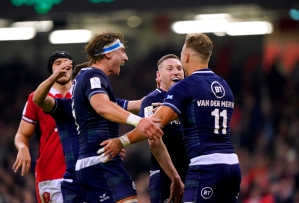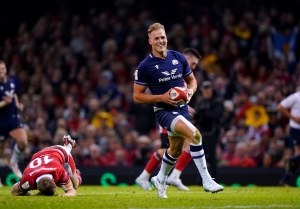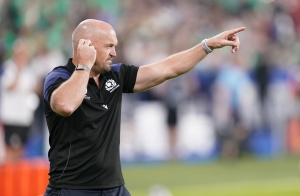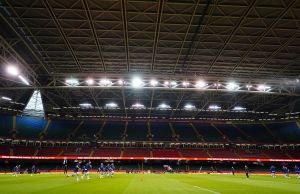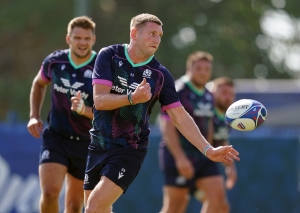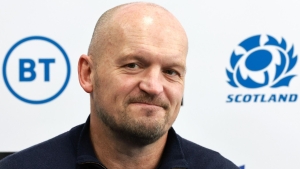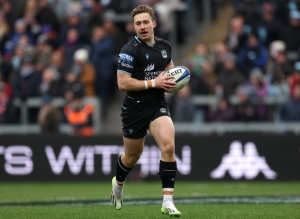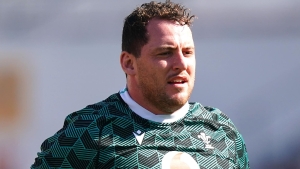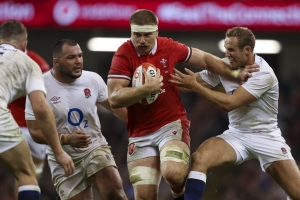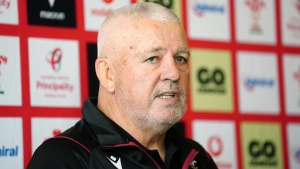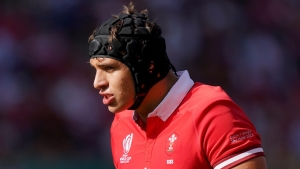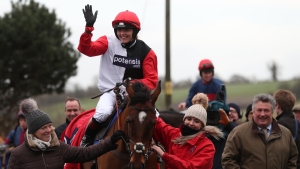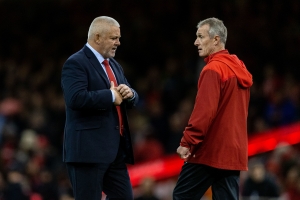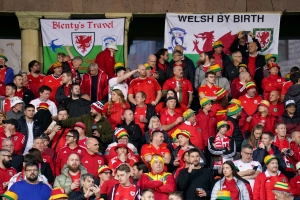Dafydd Jenkins has admitted he was left shaking after the phone call from Warren Gatland that elevated him to lofty heights as Wales’ youngest captain for 56 years.
The 21-year-old Exeter lock is set to lead his country against opening Guinness Six Nations opponents Scotland on Saturday week.
Not since a 20-year-old Gareth Edwards skippered Wales for the first time – also against Scotland in Cardiff – during the 1968 Five Nations, has there been such a youthful captain.
Jenkins, though, already has plenty of experience having first captained Exeter at 19 and this season steered them into Gallagher Premiership title contention and the Investec Champions Cup knockout phase.
Recalling the moment that he described as “a dream come true”, Jenkins said: “I was in Exeter, at the club and I had a call from a number I didn’t have (in his phone), and Gats obviously said who it was.
“So you’re just going along with it, really. I was not too sure it was actually him or one of the boys playing a prank.
“So I spoke to him and I was pretty convinced it was him, coming off the call.
“After I put the phone down a few of the boys around me were asking me who it was. I was shaking afterwards. It was class.
“I had it (Gatland’s number) on WhatsApp and we have a few other Welsh boys at Exeter like Joe Hawkins, so I compared the number with him.”
Recent Wales captains Jac Morgan, Dewi Lake and Ken Owens were soon in touch to offer congratulations, along with former Wales and British and Irish Lions skipper Sam Warburton.
Jenkins’ father Hywel was an outstanding back-row forward who gained Wales A recognition at representative level, while his grandfather played in the same Wales schoolboys side as Edwards.
“My mum’s dad played in the same team as Gareth Edwards – Welsh schoolboys – and went on to play for Aberavon. My father played for Llanelli,” he added.
“I like trying to lead by example on the field and around the training pitch. Obviously, the nines and 10s are great talkers and there are other leaders within the team, so I just try to do my bit on the pitch and hopefully people follow.
“I think you try and lead with your actions. There is no point telling other people what to do when you are not doing it yourself.”
Jenkins has just 12 caps to his name and he features in a highly-competitive second-row area with the likes of Will Rowlands and Adam Beard.
But Gatland has seen the same qualities in him as Exeter rugby director Rob Baxter, handing him the top playing job in Welsh rugby job barely a month after his 21st birthday.
He will take a charge of an inexperienced squad – almost half the 34-strong group have cap totals in single figures – while Wales’ Six Nations prospects have been dismissed by many, especially given the absence of players like Morgan, Lake, Taulupe Faletau, Dan Biggar, Liam Williams and Louis Rees-Zammit.
“I think a lot of people have written us off already, which is a dangerous thing to do with us,” Jenkins said.
“Obviously, with the young squad, they wouldn’t be in there if they weren’t talented enough and if Gats didn’t think they could do a job.
“I think a lot of people are underestimating what this team can do. They have in the past, and as a country we have proven people wrong time and time again.”
Wales, meanwhile, have eased any fears surrounding centre George North, who suffered a shoulder injury during Ospreys’ European Challenge Cup victory over the Lions in Johannesburg on Sunday.
Wales assistant coach Neil Jenkins said: “George is going to be alright. He might do a little bit this afternoon, but hopefully he will be able to train (on) Friday.”





















